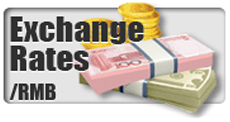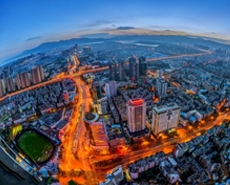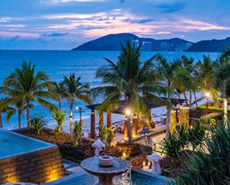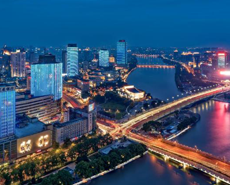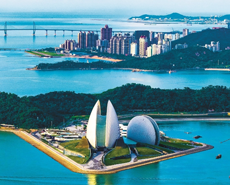With a cautiously optimistic attitude towards the market prospects, it is risky to build excessive HRC stocks
----Interview with Huang Wenquan, Manager of Thai Chonburi Thaiswasdi Co., Ltd.
Founded in 1984, Chonburi Thaiswasdi Co., Ltd. majors in steel trading and processing, with an annual trading volume of around 30,000 tonnes. The company has earnt a favourable reputation in the steel industry by adhering to the “Consumer first, reputation first” business philosophy. It has built long-term cooperation with several state-owned and famous enterprises, enabling it to make some significant achievements within the processing and distribution industry.
Asian Metal: Good afternoon, Mr. Huang. Thanks a lot for agreeing to the interview. Please could you briefly tell us about your company.
Huang: It’s my pleasure. It’s been 32 years since our foundation. Chonburi Thaiswasdi mainly deals with the trading of HRC and plate, and it is also involved in the process of opening HRC into plate and the sheering of plate. The company owns two flattening and 18 cutting and bending machines at present, with the monthly trading volume ranging from 2,500-3,000 tonnes.
Asian Metal: What’s your biggest challenge at present? What about your advantages?
Huang: There are 300-400 medium-sized steel enterprises like Chonburi Thaiswasdi in Thailand. A common problem for us is capital shortage. As you know, banks have restricted loans to steel firms in the past two years in view of the inauspicious market prospects.
The biggest advantage for Chonburi Thaiswasdi is that we are not only involved in steel trading, but are also engaged in processing, both of which complement each other and avoid potential risks.
Asian Metal: What has downstream demand for HRC been like in Thailand this year? Has there been more foreign investment following the stabilization of the political situation?
Huang: The market has witnessed steady demand this year, amid spiralling prices. The trading volume of Chonburi Thaiswasdi has been around 20,000 tonnes this year to date, similar to that during the corresponding period of last year.
Although politics has tended to stabilize, investment from foreigners hasn't improved much due to rising operating costs. For example, the average daily wage of your ordinary Thai worker is THB300, whereas it could be as low as THB200 in Vietnam and Cambodia.
Asian Metal: What about HRC production in Thailand this year? Do you rely much on imported materials? Where do you mainly import from?
Huang: There are two major mills producing HRC in Thailand, and the supply has been steady since the beginning of the year. We mainly import from Taiwan, Brazil and Mid-East countries. In the meantime, the government has endeavoured to protect domestic steel mills and restrict imports. On 15 November, Thailand Ministry of Commerce announced plans to levy anti-dumping taxes on imported HRC from Brazil, Iran and Turkey.
Asian Metal: Having benefited from the policy of cutting production capacity, the price of coke in China has soared by 230% since the beginning of 2016, with the domestic sales price seeing an increase of 60%, while that for exports has risen by 16%. Did this positive news have an obvious influence on the Thai HRC market?
Huang: The international steel market is all connected. Sharp and continuous price increases in China, the largest steel producing country worldwide, have boosted prices in other markets and strengthened market participants’ confidence to a large extent. The government of China has endeavoured to promote supply-side reform and constrain steel production capacity in the past two years, so an easing of the glut is just around the corner.
Asian Metal: As market transactions for 2016 draw to an end, what are your thoughts on the market outlook for next year?
Huang: Personally, I am adopting a cautiously optimistic attitude towards the market prospects for 2017, and I plan to maintain stocks within the safe levels of 3,000 tonnes per month. It's said there will be a large scale railway construction project launched in Bangkok next year after the Songkran Festival, which means demand for HRC is likely to be stronger. Besides, with sales of CRC brisk, CRC processers will have to enlarge the quantity of HRC they purchase, so demand for the latter is set to increase.
Asian Metal: What do you think steel enterprises should do to adapt to the new normal?
Huang: Chonburi Thaiswasdi survives on high quality and developing our credibility. As modern enterprises, we need to be conscious, intelligent and keep pace with the times. Alongside this, we should extend our service models and balance distribution between the market and end users.
Asian Metal: Thanks so much for your time.
Huang: It’s my pleasure.

